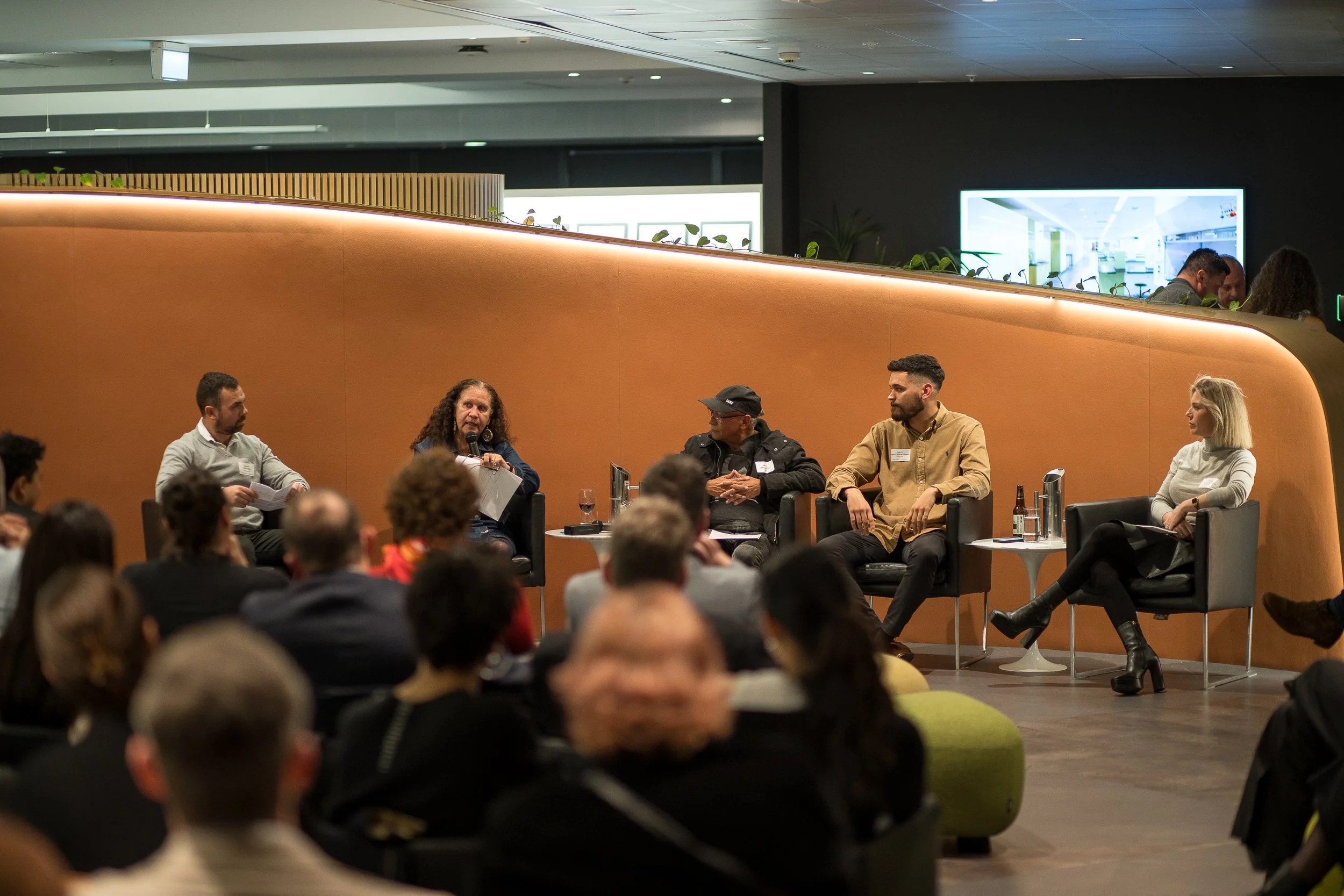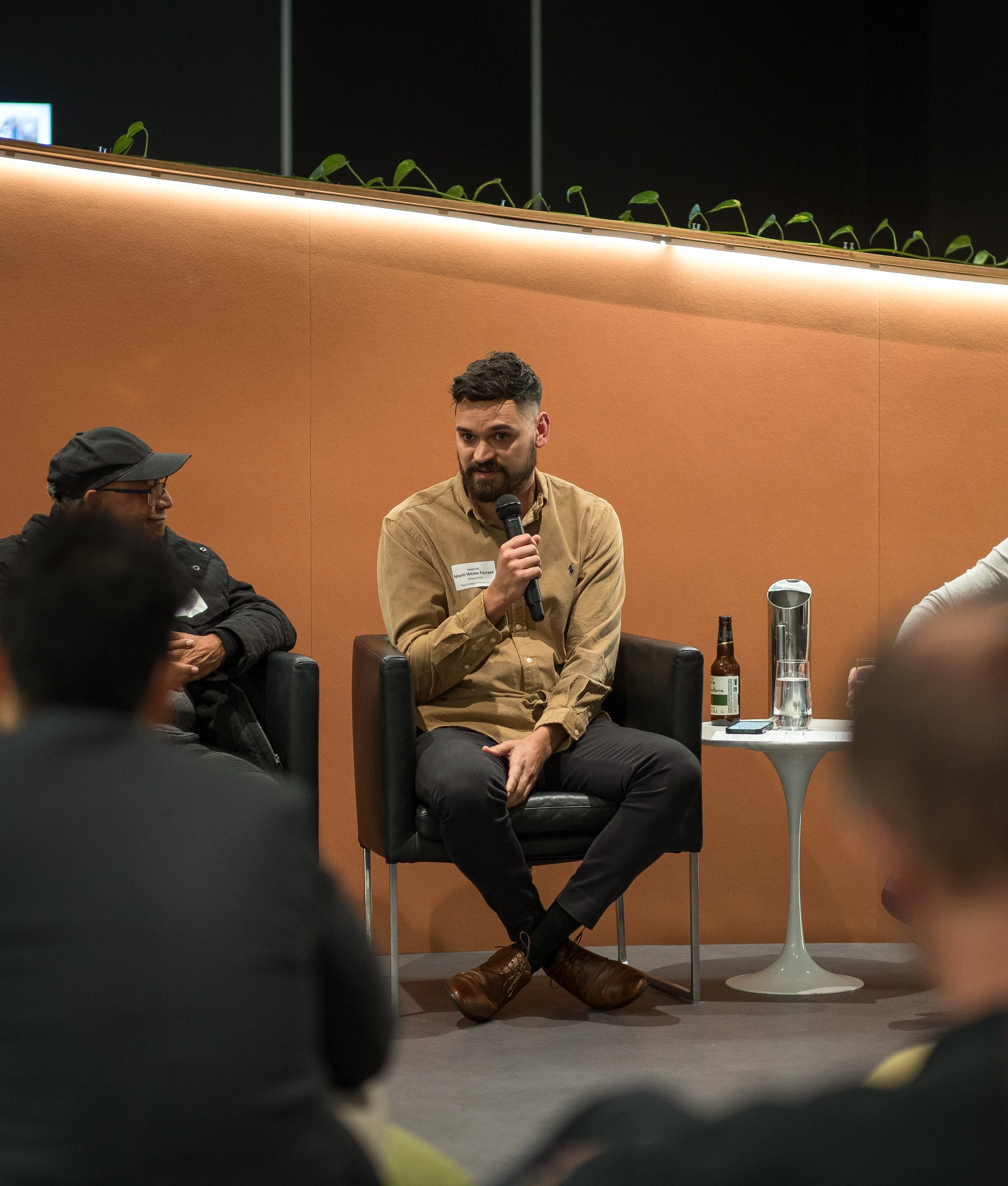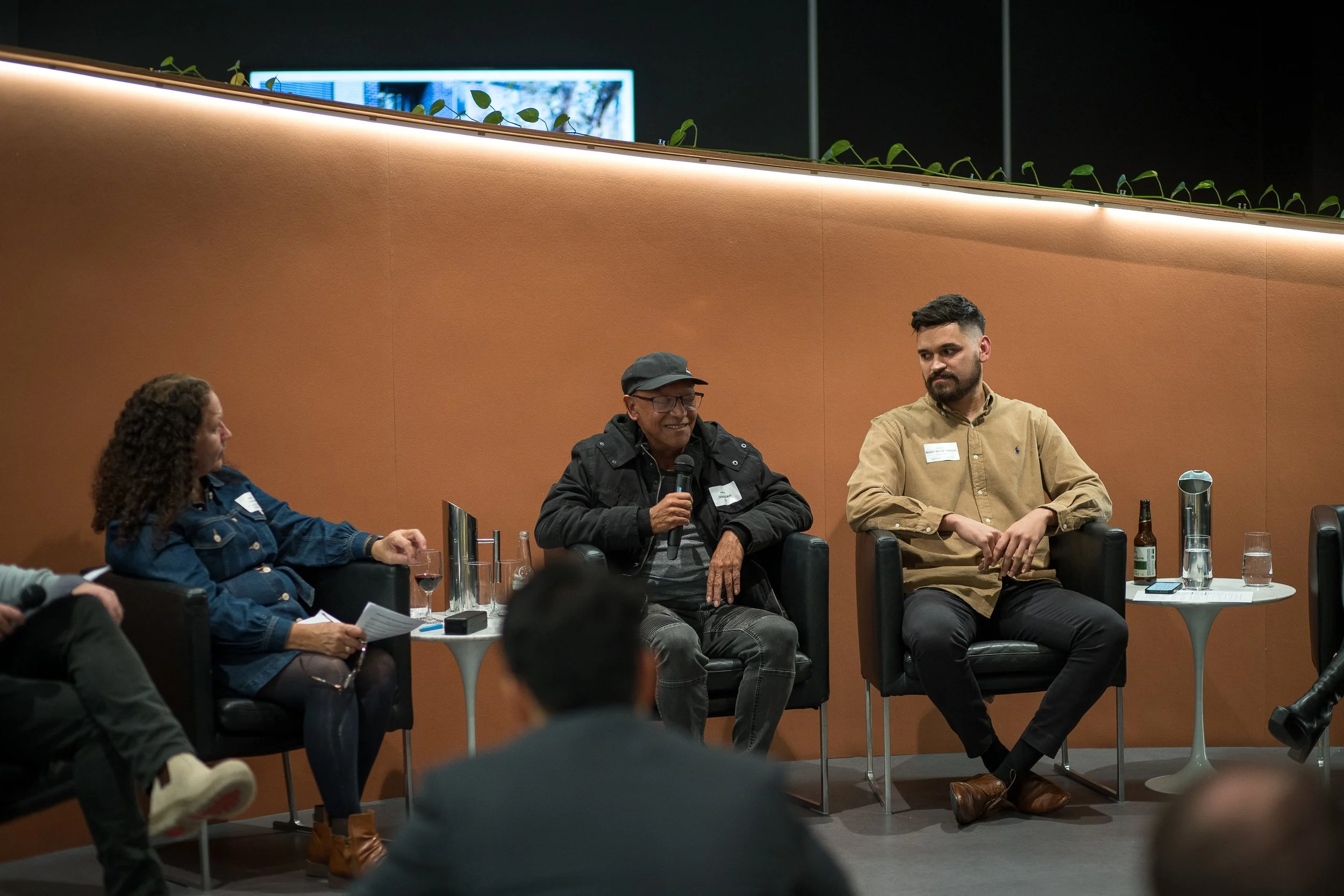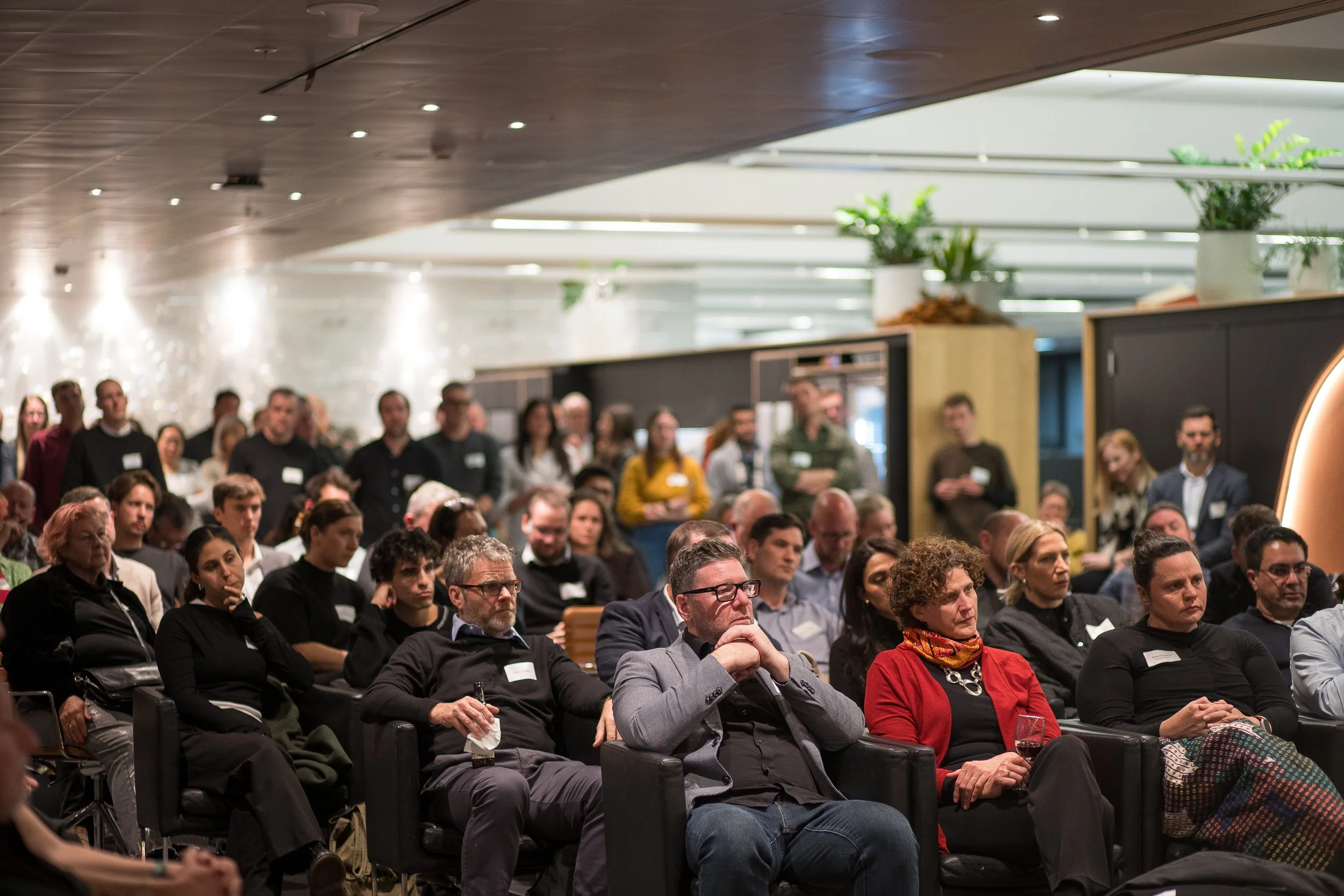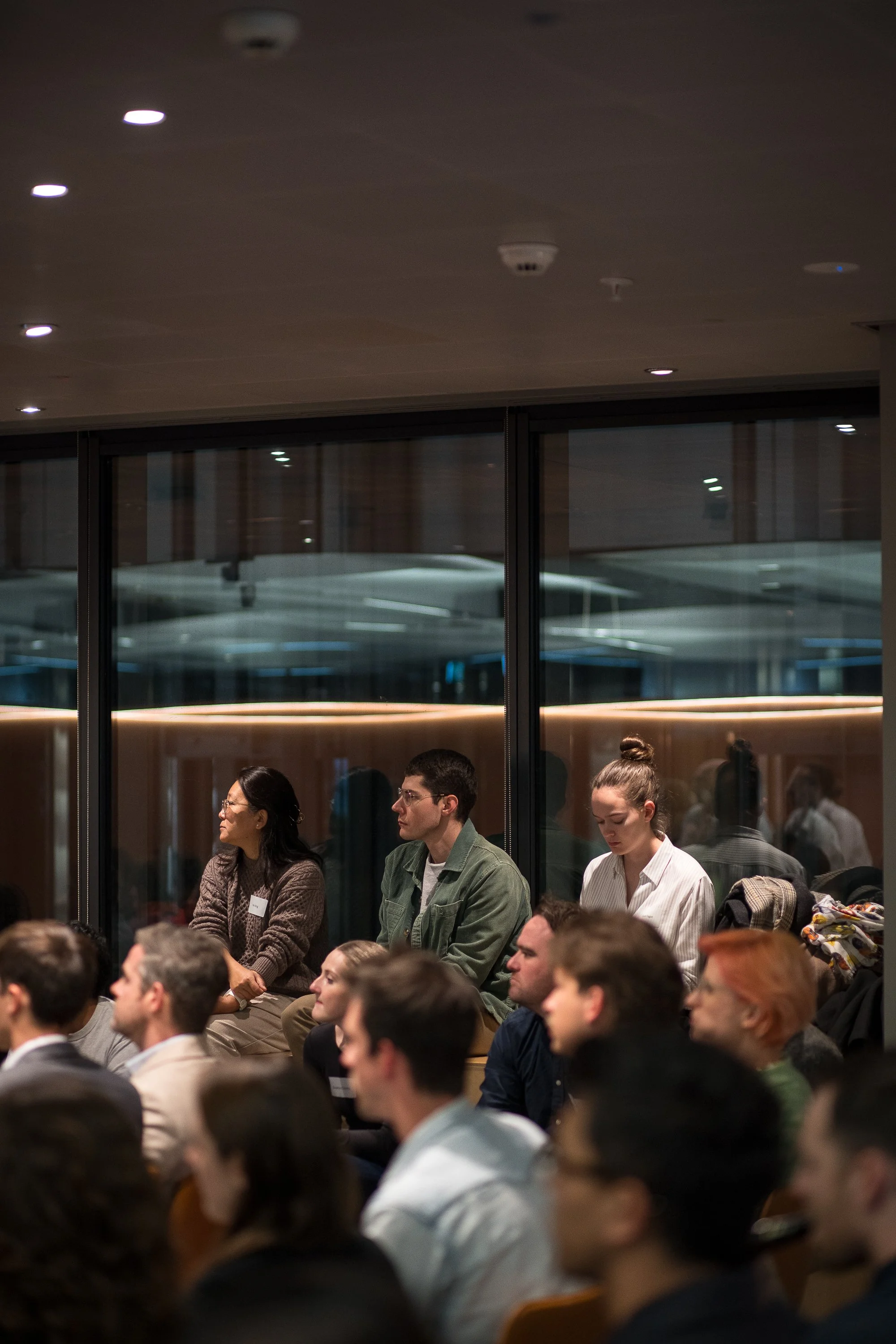Bridging Now to Next
The panel (left to right): Josh Duke (Chairperson, Nguluway DesignInc), Carol Vale (CEO and Co-Founder, Murawin), Uncle Kevin Gavi Duncan (Gomeroi, Mandandanji and Awaba Elder), Niwili White Forrest (Associate, Nguluway DesignInc) and Trish McCann (Director Marketing - APAC, Interface)
What role does the built environment sector play in ‘Bridging Now to Next’ in Australia’s reconciliation journey?
This was the powerful question that anchored a moving and thought-provoking panel discussion hosted by DesignInc and Nguluway DesignInc in recognition of National Reconciliation Week 2025. With a cross-section of design, cultural, commercial, and community leaders joining the panel, the event sparked critical conversations on how the industry can—and must—create a future where the built environment truly reflects and respects the cultures, values and Country of First Nations peoples.
The panel included Carol Vale (Dunghutti)—Co-Founder and CEO, Murawin, Niwili White Forrest (Ngangikurungurr)—Associate, Nguluway DesignInc, Uncle Kevin Gavi Duncan—Gomeroi, Mandandanji and Awaba Elder, Trish McCann—Director Marketing - APAC, Interface, and was hosted by Josh Duke (Dunghutti)—Chairperson of Nguluway DesignInc.
Left to right: Craig Kerslake (Managing Director, Nguluway DesignInc), Carol Vale, Josh Duke, Uncle Kevin Gavi Duncan, Niwili White Forrest and Trish McCann
It’s more than a moment—it’s a movement.
Nguluway DesignInc Chairperson Josh Duke set the tone for the evening, highlighting the significance of the dates that bookend National Reconciliation Week, and the vital opportunity for the built environment sector to move beyond symbolic gestures into systemic change.
“Be curious and delve into culture. That’s where understanding begins—and from understanding comes respect, relationship, and real change.”
— Josh Duke
The conversation that followed traversed history, policy, design practice, and future potential—asking panellists to reflect not only on where we’ve been, but where we are now and where we’re heading.
Nguluway DesignInc Associate, Niwili White Forrest
Where have we come from?
Reflecting on their own professional and personal journeys, Carol Vale (CEO and Co-Founder, Murawin) and Niwili White Forrest (Associate, Nguluway DesignInc) shared the need to go beyond consultation and into deep collaboration with First Nations communities.
“Growing up in Australial, these Connecting with Country frameworks never existed. It wasn’t until university that I saw Connecting with Country formalised—the industry is slowly coming to terms with how to engage with our communities and it’s important to remember these processes are still evolving.”
— Niwili White Forrest
“Reconciliation isn’t just symbolic. It’s about creating meaningful places where we can journey together—where we know when to speak, when to listen, and when to step aside. That takes courage.”
— Carol Vale
A reconciled future: what does it look and feel like?
What emerged from the dialogue was a collective vision for a future in which Country is not an afterthought, but a central consideration in design and development—from material choice to community engagement.
“Reconciliation is when Connecting with Country isn’t a checkbox—it just is. It’s embedded, expected, and supported at every stage, just like budget or safety.”
— Carol Vale
“We walk along the dreaming trails of those before us. The built environment should reflect that—because Country tells our shared story, not just an Aboriginal one.”
— Uncle Gavi Duncan
Where are we now—and what’s still missing?
The panel didn’t shy away from hard truths. Ongoing structural barriers—such as limited representation in education pathways, inconsistent government frameworks, and commercial pressures—continue to limit the visibility and agency of Indigenous voices in built environment processes.
But change is possible. And it starts with action.
“Timelines and business-as-usual models can be huge barriers. We’re chasing KPIs and outputs, but cultural engagement doesn’t work like that. We need to create space to do things properly and connect in a more meaningful way.”
— Trish McCann
“Often, people are looking for a motif or a symbol to use. But what they’re dealing with is someone’s story, their culture, their history, which often includes trauma. These are very personal relationships. And we need to treat it that way.”
— Niwili White Forrest
Uncle Gavi Duncan (centre)
The path ahead
One message rang clear: reconciliation is not a single milestone but a continual process. And the responsibility sits with all of us—to embed First Nations perspectives at every stage, from concept to construction and beyond.
“Ask the question. Be the fool for a minute—because if you don’t ask, you risk being the fool for life. Leadership means making space for better ways of working.”
— Trish McCann
“Where is the cultural safety in your process? Where do you acknowledge trauma and embed respect—not just through intention, but through action?”
— Carol Vale
“It’s not just about recognising Indigenous stories—it’s recognising they’re your stories too. Everyone lives on Country. Everyone has a relationship with it.”
— Uncle Gavi Duncan
We thank our panel—Uncle Gavi, Carol Vale, Niwili White Forrest, and Trish McCann—and our moderator, Josh Duke—for their insights, truth-telling and generosity in sharing their stories.

